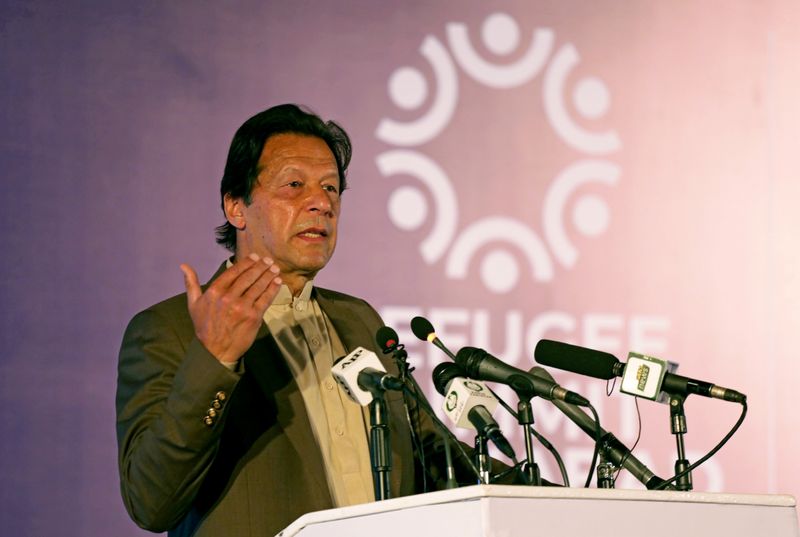By Umar Farooq
Islamabad (Reuters) - Pakistan's Prime Minister Imran Khan said on Monday he would like convicted rapists to be publicly executed or chemically castrated, reacting to a question on the rape of a woman on a highway last week that has caused uproar in the South Asian nation.
Last week, a mother of two driving along a major highway near Lahore was dragged out of her car and raped by two men at gunpoint - one of whom was arrested by police on Monday.
Khan said he believed the culprits should be hanged publicly, but added that officials had informed him that such an act could endanger a preferential trade status given to Pakistan by the European Union (EU).
The EU's Generalized System of Preferences (GSP-plus) status, granted to Pakistan in 2014, is contingent upon observation of international conventions, such as human rights.
However, Khan said he was also looking into the option of chemical castration instead.
"The way there is first degree, second degree, third degree murder, this [rape] should be graded in the same way, and when there is first degree [rape], castrate them. Operate on them and make them unable to do this," Khan said in an interview on a Pakistan news channel.
Khan's remarks came as Pakistani officials announced that one of the two main suspects in the motorway rape case had been arrested and had admitted to the crime. Officials said they also had a positive DNA match. The search for the second suspect is still ongoing.
Police retrieved DNA samples from the site, and used GPS data from cellular phone networks to identify individuals who were at the site when the attack occurred.
The shocking assault sparked nationwide protests and calls for the resignation of officials as well as the public hanging of rapists in Pakistan.

This February, lawmakers introduced legislation for the public hanging of those convicted of sexual abuse and the murder of children, but the law was not passed.